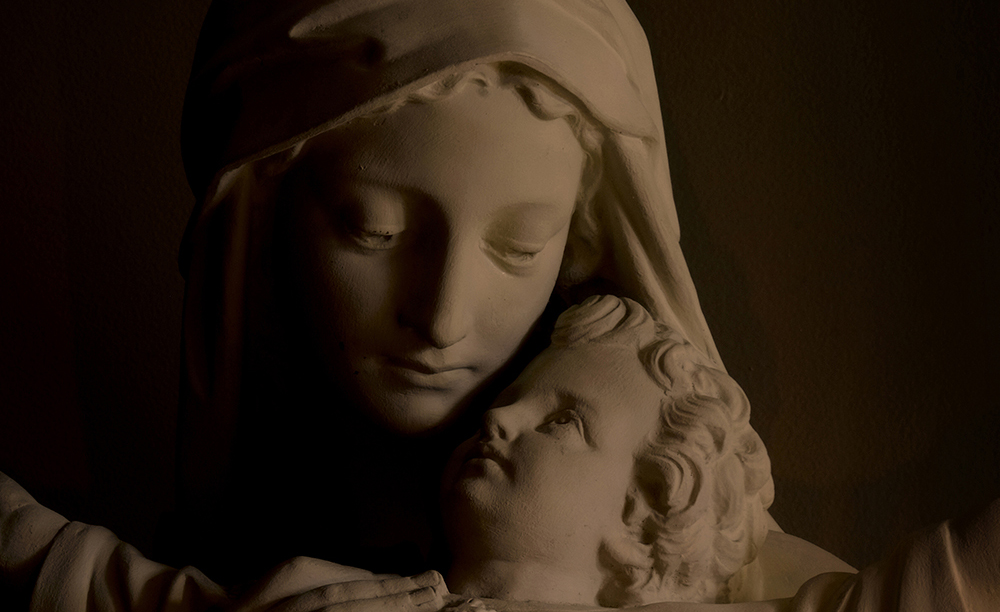There is something about Mary that drives many fundamentalists and some evangelicals nuts.
Of course, they will insist Mary doesn’t bother them, but they claim the “fact” that Catholics exalt her so much she is apparently worshipped, or even — as you can read in the most extreme anti-Catholic literature — promoted to the fourth person of the Trinity. When I was a fundamentalist, I knew that Catholics worshipped Mary. Why else did they have statues of her, pray the Rosary to her and call her the “Mother of God”? Didn’t they know that God has no mother? How ridiculous!
It is hard to overstate the reactionary stance of fundamentalists toward any positive teaching about Mary. For example, in my years attending a small fundamentalist “Bible chapel” as a boy, I recall at least three sermons praising Rahab the harlot (see Jos 2 and 6:17-25), but just one about Mary, the mother of Jesus. And in that sermon, Mary was described as a “good mother” (true, of course) who was no different than anyone else.
A close relative once described the Blessed Mother as “a biological vessel” used by God — the sort of remark that would be rightly considered insulting if directed to any other mother. And a close friend from my Bible college days asked me, upon learning that I was becoming Catholic (in 1997), “But what are you going to do about having to worship Mary?”
What exists, then, is a double-pronged problem: Fundamentalists hold to a very lacking, even insulting, view of Mary because they have a deeply distorted understanding of what the Catholic Church teaches and believes about Mary. Their doctrine is almost completely negative in character, shaped in reactionary fear rather than in receptive faith.
If that sounds unduly harsh, consider that fundamentalists are loathe to admit that Mary is indeed the Mother of God. This is an essential point in addressing the accusation that Catholics “worship” Mary. Simply put, if a person refuses to admit the truth about Mary being Theotokos (“God bearer,” or Mother of God), he will not understand authentic Catholic devotion to Mary. James McCarthy, a former Catholic who operates a ministry meant to “save” Catholics, writes in “The Gospel According to Rome” (Harvest House, 1995) that “the Bible . . . never calls Mary the Mother of God for a very simple reason: God has no mother. As someone has rightly said, just as Christ’s human nature had no father, so His divine nature had no mother. This Bible, therefore, rightly calls Mary the ‘mother of Jesus’ (John 2:1; Acts 1:14) but never the Mother of God.” Like Nestorius (d. 451), who made the same basic error in the fifth century, McCarthy overlooks that mothers do not give birth to natures, but to persons. Jesus Christ has two natures, but he is one Person. While Jesus’ human nature comes from Mary and His divine nature from the Father (see Catechism of the Catholic Church, No. 503), he is not partially divine and partially human, as McCarthy’s statement implies.
Fundamentalists claim they believe that Jesus is one person, true God and true man. But they fail to reach logical conclusions fixed upon that foundational fact. Prior to the Incarnation, God not only didn’t have a mother, He also never wore clothing, ate food, took naps or went fishing! But the Incarnation, the central event in salvation history, radically changed the relationship between God and man precisely because God became man — and He did so by being born of the Virgin Mary. Every devotion shown to Mary by Catholics (and the Eastern Orthodox) is based in the belief she is the Mother of God. But this devotion is not worship; that is for God alone. Besides, if Jesus loves His mother — and we know He does — shouldn’t we also express the same sort of familial love?
Carl E. Olson is the editor of Ignatius Insight (www.ignatiusinsight.com).

